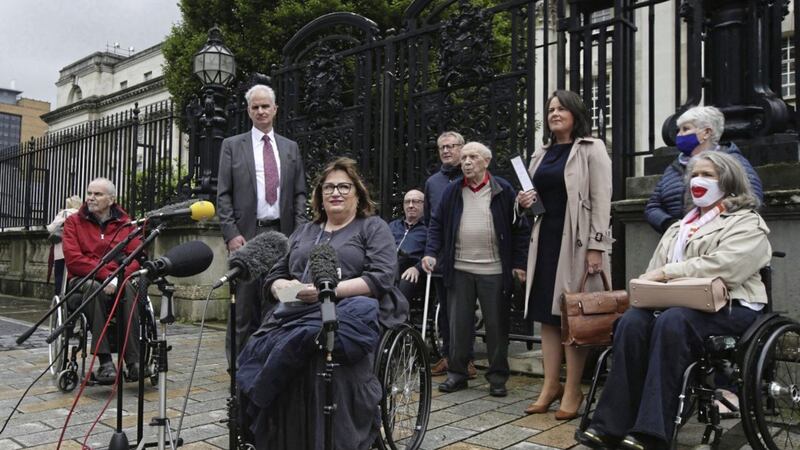THE first and deputy first ministers' office spent more than £22,000 on legal advice over a High Court challenge to delays in the Troubles pension scheme.
The full cost of the Executive Office (TEO) attempting to defend the delays has yet to be finalised, as counsel fees and applicant costs are still to be confirmed.
A judge last month ruled the department was acting unlawfully in delaying the introduction of the compensation scheme for seriously injured Troubles victims.
It had been approved by Westminster in January. Deputy First Minister Michelle O'Neill had declined to progress the scheme by refusing to allow TEO to nominate a department to administer the payments.
A judicial review was brought by victims challenging the delay.
Mr Justice McAlinden said TEO was deliberately stymieing the commencement of payouts in order to pressurise the government over funding and, in Ms O'Neill's case, getting the eligibility criteria changed.
In a scathing judgment, he described claims that it was permissible to delay allocation of the compensation programme for political reasons as "arrant nonsense".
A total of £22,288.92 was spent on legal advice for the judicial review, TEO said in a Freedom of Information (FOI) response to The Irish News.
"No estimate is available at this point of the total costs as the applicants have not yet submitted their bill of costs. Counsel fees are also awaited," it added.
Under guidance for the scheme, anyone convicted of causing serious harm during the Troubles would be ruled out.
Sinn Féin has claimed the British government policy is discriminatory and could unfairly exclude many republican ex-prisoners.
Following the High Court ruling, the Department of Justice was subsequently designated to administer the scheme.
However, justice minister Naomi Long has said it could be March 2021 before it opens for applications.
The Alliance leader also said the British government should contribute funding.
Stormont and Westminster have been in dispute over who should pay for the scheme, with the executive arguing the British government should contribute as it is a UK-wide scheme with people injured outside of Northern Ireland able to apply.
It had originally been estimated to cost about £100m, but Mrs Long has suggested the upper estimate could be as high as £800m.
First Minister Arlene Foster, who jointly runs TEO with Ms O'Neill, did not veto their department having legal representation defending itself in the High Court challenge.
This was despite the DUP leader and her party's repeated criticism of Sinn Féin for refusing to designate a department for the scheme.
In the FOI response, TEO refused to release any correspondence on discussions as to whether it should be legally represented in the case, citing a 'legal professional privilege' exemption.








